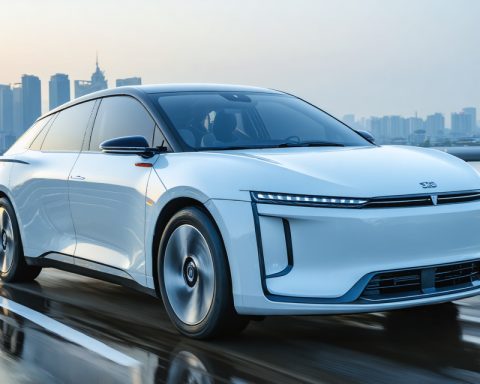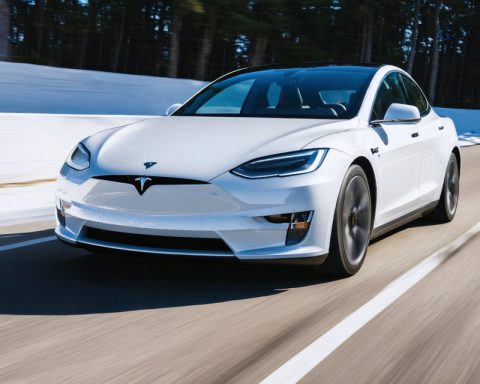- Governor Tim Walz humorously critiqued Tesla’s stock performance and Elon Musk’s influence during a speech in Rochester, Minnesota.
- Walz’s witty remarks about removing Tesla logos hint at broader dissatisfaction with corporate giants and their societal responsibilities.
- He criticized Musk’s cost-cutting measures in the Department of Government Efficiency (DOGE) for negatively impacting public services, particularly veterans’ care.
- Walz’s comments reflect a wider national debate on the responsibilities of wealth and the need for accountability in billionaire-led firms.
- The narrative urges leaders like Musk to prioritize social good over profit margins, mirroring public sentiment on economic inequality.
Minnesota’s Governor Tim Walz isn’t shy when it comes to speaking his mind, even if it’s at the expense of one of the world’s most prominent CEOs, Elon Musk. During a recent gathering in Rochester, Minnesota, Walz humorously acknowledged his penchant for making quips, this time at the faltering trajectory of Tesla’s stock value.
Walz’s Witty Rebuttal
With vibrant candor, the governor mused about Tesla’s stock performance, playfully suggesting that unsatisfied Tesla owners could remove the car’s logo with dental floss. This lighthearted jab was more than a mere stock market quip; it embodied a broader commentary on Musk’s outsized influence and the tech mogul’s controversial public actions.
A Bigger Picture
Yet, beneath this humor lies a deeper narrative about dissatisfaction with modern corporate giants. Walz critiques not just Tesla, but what he perceives to be systemic shortcomings in how high-profile entrepreneurs like Musk engage with societal responsibilities. The governor expressed disapproval of Musk’s cost-cutting measures within the Department of Government Efficiency (DOGE), criticizing them as detrimental to key public services, particularly those affecting veterans’ care.
Humor or Harsh Reality?
Walz’s comments mirror the mixed sentiment many Americans hold toward billionaires—admiration for their success juxtaposed with skepticism about their societal impact. His viewpoint is clear: wealth and influence should come with accountability and a commitment to public good.
A Nation in Contention
The governor’s jibes coincide with a growing national debate about the responsibilities of wealth. In an age where economic inequality is scrutinized, Walz’s off-the-cuff remarks reflect a broader call for empathy and action beyond mere financial success. Challenging Musk’s decisions is less about the whims of stock prices and more about urging leaders to prioritize social good over profit margins.
As Tesla’s stock wavers, so too does public patience with billionaire-led firms that are perceived to sidestep accountability. Walz’s narrative champions a belief that positions of power should uplift communities, not merely corporate portfolios. Perhaps it’s not just a joke, but a call for billionaires to invest back into the world that made them.
Governor Walz Challenges Tesla: A Call for Billionaire Accountability
The Witty Commentary: More Than Just Humor
Governor Tim Walz’s playful remarks about Tesla’s stock performance and Elon Musk’s leadership highlight a crucial conversation about the responsibilities of the ultra-wealthy. This critique aligns with broader concerns regarding the actions of high-profile entrepreneurs and their societal impact, scrutinizing whether wealth translates to positive change.
The Deeper Narrative on Corporate Giants
Governor Walz’s comments underscore dissatisfaction with corporate giants and their approach to societal responsibilities. While Tesla’s rocketing success captivated investors, Walz shines a light on Musk’s controversial decision-making and perceived neglect of public responsibilities. This criticism is epitomized by referring to Musk’s cost-cutting measures, particularly those impacting veterans’ care within the Department of Government Efficiency (DOGE).
Balancing Wealth and Accountability
The governor’s critique reflects a sentiment shared by many: while billionaires’ achievements are often admired, their lack of accountability remains divisive. Wealth should be coupled with a strong commitment to societal betterment. Walz’s vision emphasizes that economic achievements should not eclipse ethical and community responsibilities.
Pressing Questions: Exploring the Balance of Wealth and Responsibility
How Do Billionaire Actions Influence Public Sentiment?
Economic inequality and corporate accountability are hot topics today. Decisions made by individuals like Musk can significantly influence public sentiment, especially when they affect public services or environmental policies. Companies must prioritize social responsibility to maintain public trust and their market position.
What is the Public’s Opinion on Tesla’s Recent Moves?
Public opinion on Tesla remains mixed, heavily influenced by Musk’s personal actions and the company’s business strategies. While innovation and sustainability efforts are praised, criticisms regarding labor practices and stock volatility persist, shaping how the brand is perceived globally.
Real-World Use Cases and Industry Trends
As electric vehicles (EVs) gain traction, Tesla remains a leader while facing competition from brands like Rivian and established automakers like Ford and GM. The industry trend is leaning towards more sustainable technology, incentivized by government policies aimed at reducing carbon footprints.
Pros and Cons: Tesla in the Spotlight
Pros:
– Innovative Technology: Tesla leads in EV range, autonomous driving tech, and energy solutions.
– Brand Prestige: As a pioneer in the EV industry, owning a Tesla is often associated with forward-thinking.
Cons:
– Stock Volatility: Intensely fluctuating stock prices can deter prudent investors.
– Controversial Leadership: Musk’s actions often attract scrutiny, affecting public perception.
Conclusion: Actionable Recommendations for Responsible Business Leadership
Corporate leaders must align their business strategies with societal benefits. By focusing on community development and environmental responsibility, companies can bolster their public image and secure long-term success. Leaders should advocate for transparent practices, ethical considerations, and community reinvestment.
For additional reading, explore the broader discussions about wealth and societal impact on The New York Times and keep up with the latest electric vehicle trends at Bloomberg.
This conversation invites billionaires to harmonize their financial victories with constructive contributions, ensuring their legacy is one of positive change.


















